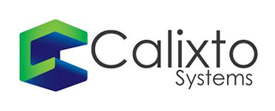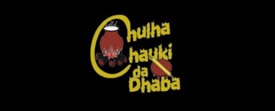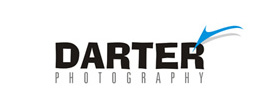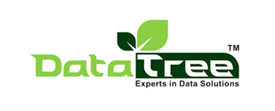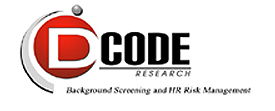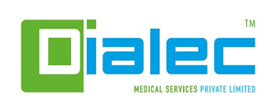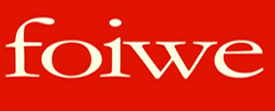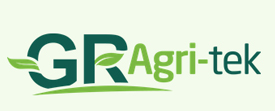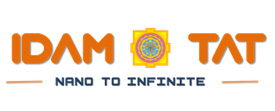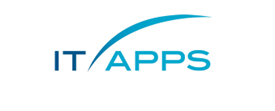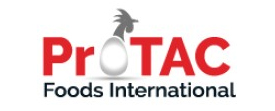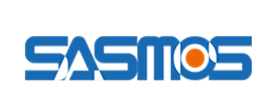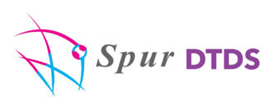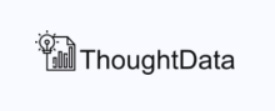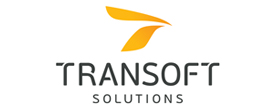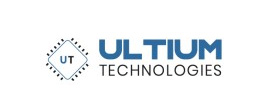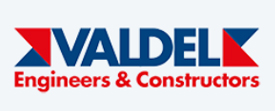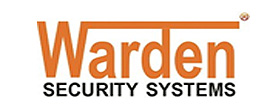Valuation & Business Modelling
Our team provides accurate valuations and detailed business models, offering clear insights into company worth and future potential to support your strategic planning.

For businesses seeking to precisely assess their financial value, project future cash flows, and make well-informed decisions on expansion, mergers, acquisitions, and strategic investments, valuation and business modelling are crucial services. This service evaluates a company's inherent value using established valuation procedures and global financial standards by combining quantitative financial analysis and strategic modelling.
Through techniques like Discounted Cash Flow (DCF) Analysis, Comparative Company Analysis (CCA), and Precedent Transaction Analysis, businesses gain precise insights into their valuation under various market scenarios and regulatory conditions. These valuation models are critical not only for M&A (mergers and acquisitions) activities but also for purposes like tax compliance, financial reporting under IFRS and GAAP, intellectual property valuation, and goodwill impairment testing.
To ensure complete compliance with national and international laws, our valuation and business modelling services follow internationally recognised frameworks such as the Uniform Standards of Professional Appraisal Practice (USPAP) and the International Valuation Standards (IVS). This is particularly important for businesses that conduct cross-border transactions because following these standards reduces risk and improves transparency with investors and regulatory bodies.
Business modelling provides a thorough grasp of business viability and long-term growth potential by delving further into operational performance measures, such as EBITDA margins, working capital ratios, and cost of capital computations, in addition to financial value. Better strategy alignment and resource allocation are made possible by our client's ability to develop financial strategies based on actual data and projections rather than conjecture thanks to this analytical methodology.
Why Choose Benchmark
Our approach combines advanced valuation methodologies, adherence to regulatory frameworks, and in-depth market analysis to provide precise, actionable regulatory frameworks, and in-depth market analysis to deliver precise, actionable insights. We provide transparency and credibility in every valuation report, meeting the high standards demanded by auditors, investors, and regulatory bodies alike. By choosing our firm for your valuation and business modelling needs, you are choosing a team committed to accuracy, regulatory compliance, and industry-specific expertise. Our models not only meet compliance standards but are also tailored to support strategic decisions with data-backed clarity and precision.
- Extensive experience in GAAP, IFRS, and FASB-compliant valuations
- Expertise in DCF, CCA, and Precedent Transaction Analysis for precise market valuation
- In-depth understanding of Weighted Average Cost of Capital (WACC) and Enterprise Value (EV) calculations
- Proven track record in high-stakes transactions, including mergers, acquisitions, and shareholder buyouts
- Full compliance with IRC Section 409A, ASC 805, and International Valuation Standards (IVS)
- Detailed valuation reports designed to pass regulatory scrutiny and investor audits
Our Services
Our business modelling and valuation services are designed to provide accurate, legally compliant evaluations that inform important business choices. We are aware that every transaction and valuation situation is different and calls for customised strategies that take into account certain industrial, legal, and strategic requirements. Whether for tax restructuring, shareholder buyouts, M&A, or GAAP and IFRS compliance, our services offer the breadth, precision, and openness that promote confident decision-making. A thorough explanation of our offerings and the methodical procedure we employ to guarantee that every assessment is precise, legal, and strategically valuable can be found below.
| Service | Description | Approach | Applicable Standards | Key Output |
|---|---|---|---|---|
Company Valuation |
We determine the fair market value of your business, assessing intrinsic and market-driven value indicators through a comprehensive analysis of assets, liabilities, cash flows, and industry benchmarks. | Using DCF, Comparable Company Analysis (CCA), and Market Multiples tailored to your industry's specific dynamics. | IVS, FASB, GAAP | Valuation report detailing market value, fair value adjustments, and valuation under various financial scenarios. |
Intangible Asset Valuation |
Our team assesses intangible assets like intellectual property, patents, and trademarks, ensuring compliance with industry valuation standards and financial reporting requirements. | Detailed analysis based on future cash flow potential and replacement cost, incorporating IRC Section 409A and ASC 805 standards. | IRC 409A, ASC 805, IFRS | Intangible Asset Appraisal Report with distinct valuation for each asset, in compliance with GAAP and IFRS. |
Financial Modeling for Forecasting |
We create detailed financial forecasts and models to project future cash flows and capital needs, helping you anticipate and prepare for market changes. | Scenario Analysis, Sensitivity Testing | FASB, GAAP | Assists in budgeting, growth planning, and investor presentations |
Fair Value Measurements |
We perform fair value assessments that comply with regulatory and financial reporting standards, ensuring transparency and accuracy in financial disclosures. | Fair Value Hierarchy under ASC 820, Market Participant Assumptions | ASC 820, IFRS 13 | Ensures accuracy in financial reporting and audit compliance |
Merger & Acquisition Valuation |
Our M&A valuations provide accurate valuations for potential acquisition targets, helping you evaluate and integrate companies with confidence. | Enterprise Value (EV) Calculation, Weighted Average Cost of Capital (WACC) | IRC 338(h)(10), FASB, IFRS | Strengthens negotiation leverage and investment decision-making |
Shareholder Buyout Valuation |
We deliver fair and accurate shareholder buyout valuations, aligned with market conditions and statutory requirements for equity transactions. | Liquidation Value, Market and Income Approaches | IRC Section 2703, FASB, ASC 805 | Supports transparent buyout processes and shareholder trust |
Tax Valuation & Restructuring |
We conduct valuations for tax restructuring, ensuring tax efficiency and compliance with relevant tax codes and standards, and optimising your tax strategy. | Fair Market Value Determination, Step-Up in Basis Calculation | IRC Section 1060, Section 338, GAAP | Optimises tax benefits and supports tax compliance |
Litigation Support Valuation |
We offer valuation support for legal proceedings, delivering valuations that meet legal and evidentiary standards for disputes and litigation. | Lost Profits Analysis, Valuation Damage Calculations | USPAP, ASC 450 | Provides reliable support for legal disputes and settlement processes |
Goodwill Impairment Testing |
Our team conducts annual goodwill impairment testing to determine whether any asset write-downs are required, in compliance with reporting standards. | Goodwill Valuation Models, Impairment Testing | ASC 350, IAS 36 | Maintains accuracy in financial statements and investor confidence |
Cost of Capital Analysis |
We perform detailed Cost of Capital analyses, providing insights on optimal financing structures to balance debt and equity funding efficiently. | Weighted Average Cost of Capital (WACC), Capital Asset Pricing Model (CAPM) | FASB, IFRS, GAAP | Optimises financing decisions and reduces capital costs |
Due Diligence for Transactions |
Our due diligence services include a rigorous evaluation of target assets, liabilities, and financial performance to ensure thorough vetting before transactions. | Financial Ratios Analysis, Quality of Earnings Analysis | IRC Section 482, GAAP, IFRS | Minimises transaction risks and enhances investment decisions |
Terminal Value Assessment |
We estimate the terminal value to support long-term projections and asset valuation, ensuring that your valuation models reflect future growth potential. | Gordon Growth Model, Perpetuity Growth Model | IVS, FASB, ASC 805 | Strengthens end-of-period valuations and financial forecasting |
Equity Allocation Modelling |
We develop models for equitable share distribution in complex ownership structures, aiding in shareholder agreements and capital distribution planning. | Option Pricing Model (OPM), Probability-Weighted Expected Return Method (PWERM) | IRC Section 409A, ASC 718 | Supports transparent shareholder agreements and equity distributions |
Documents required
Certain documents are necessary for a comprehensive and legal valuation and business modelling process in order to produce precise, data-driven outcomes. Our staff can perform an accurate assessment of your company's asset value, development potential, and financial health thanks to these documents. The essential documents needed for each stage of the valuation process are listed in the following table.
| Documents | Description | Purpose |
|---|---|---|
| Financial Statements | Annual financial reports (balance sheets, income statements, and cash flow statements) for the last 3–5 years. | Provides a historical perspective on revenue, expenses, profits, and cash flows. |
| Forecasted Financials | Projected income statements, balance sheets, and cash flow projections for the next 3–5 years. | Assists in building accurate financial models and assessing future cash flows and valuation scenarios. |
| Assets and Liability Register | Detailed inventory of all tangible and intangible assets, including patents, trademarks, and liabilities. | Aids in fair valuation of business assets and debts, supporting accuracy in valuation models. |
| Tax Returns | Corporate tax returns from the last 3–5 years. | Verifies tax compliance and reveals any tax-related financial obligations or benefits. |
| Company Projections | Management-prepared revenue projections, growth assumptions, and market share expectations. | Informs cash flow forecasts and growth models to align with strategic planning goals. |
| Debt Agreements & Loan Documents | Copies of all outstanding debt agreements, loan contracts, and bond indentures. | Assesses existing liabilities and calculates Weighted Average Cost of Capital (WACC) accurately. |
| Shareholder Agreements | Agreements that outline shareholder rights, obligations, and equity distribution. | Ensures compliance with equity allocation models and facilitates transparent share distribution. |
| Legal Contracts | Relevant contracts, including leases, customer contracts, and vendor agreements. | Provides insight into legal obligations and helps identify potential risks in business valuation. |
| Corporate Structure Document | Organisational charts and documentation on company ownership structure. | Necessary for equity valuation, especially in complex ownership structures. |
| Market research report | Industry reports, competitor analysis, and market trend data. | Informs Comparable Company Analysis (CCA) and assesses market positioning. |
| Goodwill & Impairment Testing Reports | Prior goodwill impairment tests and reports. | Necessary for ongoing goodwill valuation and identifying asset write-down requirements. |
| Insurance Policies | All policies, including property, liability, and key person insurance. | Assists in risk assessment, identifying coverage against potential losses in valuation scenarios. |
| Regulatory Filings | Compliance documentation, including filings under the SEC or relevant regulatory bodies. | Confirms adherence to regulatory standards and identifies any potential compliance issues. |
| Historical Stock & Bond Issuance | Records of stock or bond issuance and related pricing. | Important for assessing shareholder equity and calculating Enterprise Value (EV). |
Valuation and Modeling Best Practices
To achieve accuracy, adhere to legal requirements, and make wise financial judgements, it is essential to integrate best practices in business modelling and valuation. Here, we describe the fundamental best practices that underpin our modelling and valuation services, guaranteeing that each procedure is dependable and in line with your strategic objectives.
Adopt Regulatory Compliance Frameworks
Ensure valuations meet standards like the International Valuation Standards (IVS), IRC Section 409A for fair market value, ASC 805 for purchase price allocation, and ASC 820 for fair value measurements. Following these frameworks not only satisfies regulatory requirements but also boosts transparency for stakeholders.
Utilise Appropriate Valuation Methods
Select the correct valuation approach based on your business needs—whether it's Discounted Cash Flow (DCF) for intrinsic value, Comparable Company Analysis (CCA) for market benchmarking, or Precedent Transaction Analysis to assess comparable past transactions. Using the right model is critical for delivering credible, data-driven results.
Incorporate Sensitivity and Scenario Analysis
Conduct sensitivity analysis to understand how changes in variables (e.g., discount rates, cash flows, growth rates) impact overall valuation, and scenario analysis to simulate various business conditions. This approach provides a nuanced understanding of potential risks and opportunities.
Ensure Data Integrity and Transparency
Use verified data sources, including audited financials, industry reports, and regulatory filings, to support valuation assumptions. Data accuracy is fundamental in achieving defensible valuations that can withstand auditor and investor scrutiny.
Apply Market Participant Assumptions
When determining fair value, adopt assumptions from the perspective of a typical market participant, as required by ASC 820. This practice ensures valuations reflect realistic market conditions and align with financial reporting standards.
Regularly Review Goodwill and Intangible Asset Values
Perform periodic goodwill impairment testing per ASC 350 and accurately value intangible assets using methods like the Multi-Period Excess Earnings Method (MPEEM) and Relief from Royalty Method. Regular reviews help prevent overstated assets and align with GAAP standards.
Calculate an Accurate Cost of Capital
Determine the Weighted Average Cost of Capital (WACC) and apply Capital Asset Pricing Model (CAPM) when assessing the cost of equity. A precise cost of capital analysis is crucial for discounted cash flow models and provides insights into financing options.
Maintain Detailed Documentation for Audits
Document every assumption, calculation, and methodology used throughout the valuation process. Detailed documentation supports compliance with audit standards and serves as a reliable reference in due diligence or regulatory audits.
Use Realistic Growth and Discount Rates
Set growth and discount rates that reflect industry benchmarks, historical performance, and market conditions. Avoid aggressive or conservative rates that could misrepresent the valuation and instead use data-backed, moderate figures.
Valuation Readiness Checklist
Having the appropriate records and information on hand is crucial to guaranteeing a seamless, effective, and legal appraisal process. With the aid of our value Readiness Checklist, you may arrange and get ready the fundamental components needed for an accurate and thorough value. Make sure your company is prepared for the appraisal process by using this checklist as a reference.
- Recent financial statements (last 3–5 years)
- Forecasted financial projections (3–5 years forward)
- Detailed asset and liability register
- Corporate tax returns (last 3–5 years)
- Capital expenditure (CapEx) plans
- Debt agreements and loan documentation
- Shareholder and equity agreements
- Key legal contracts and agreements
- Organisational structure and ownership documents
- Industry reports and competitor analysis
- Intellectual property and intangible asset documentation
Non-Compliance Issues
Non-compliance in valuation and business modelling can lead to severe financial, legal, and reputational repercussions. Maintaining accuracy, transparency, and stakeholder trust requires strict adherence to valuation standards such as IFRS, GAAP, and IVS. Businesses should be aware of the following important non-compliance issues, as each one has the potential to impair stakeholder relations and financial operations.
- Inaccurate valuation methods (e.g., improper use of DCF or CCA models)
- Failure to meet IFRS or GAAP reporting standards
- Non-adherence to ASC 805 and IRC Section 409A requirements for intangible asset valuations
- Inadequate documentation of valuation assumptions and methods
- Failure to perform regular goodwill impairment testing under ASC 350
- Lack of compliance with FASB and IVS guidelines in valuation reports
- Misrepresentation of fair value under ASC 820 standards
- Insufficient risk assessments, including missing WACC and cost of capital calculations
Conclusion
Valuation & Business Modeling are integral tools that empower businesses to make informed, strategic decisions with confidence. Our services offer accurate, compliance-driven valuations that meet industry standards such as GAAP, IFRS, and IVS. They also provide useful insights for tax planning, M&A, capital raising, and other purposes. You may successfully negotiate intricate financial environments, guarantee regulatory compliance, and use precise valuations to promote resilience and growth with our knowledgeable advice.
Get in Touch
Connect with our team today to schedule a consultation and discover how our Valuation & Business Modeling services can support your business's strategic goals and operational clarity.
FAQs
How often should a business undergo a valuation process?
It depends on the company's needs, but typically, businesses opt for valuations during significant events such as acquisitions, financial reporting periods, or changes in ownership structure.
What are the most common valuation methods used in business modelling?
Discounted Cash Flow (DCF), Comparable Company Analysis (CCA), and Precedent Transaction Analysis are commonly used methods that provide reliable results based on financial performance and market comparisons.
How does financial forecasting differ from business valuation?
Financial forecasting involves projecting a company's future financial performance, while business valuation determines the current market value of the company based on various metrics and methodologies.
How does intangible asset valuation work, and why is it necessary?
Intangible asset valuation assesses assets like patents and trademarks to determine their value. This is essential for accurate financial reporting and maximising value in M&A transactions.
How long does the business valuation process typically take?
The timeline varies depending on the complexity and scope of the valuation, but generally, it can take anywhere from a few weeks to a few months to complete a thorough valuation.




